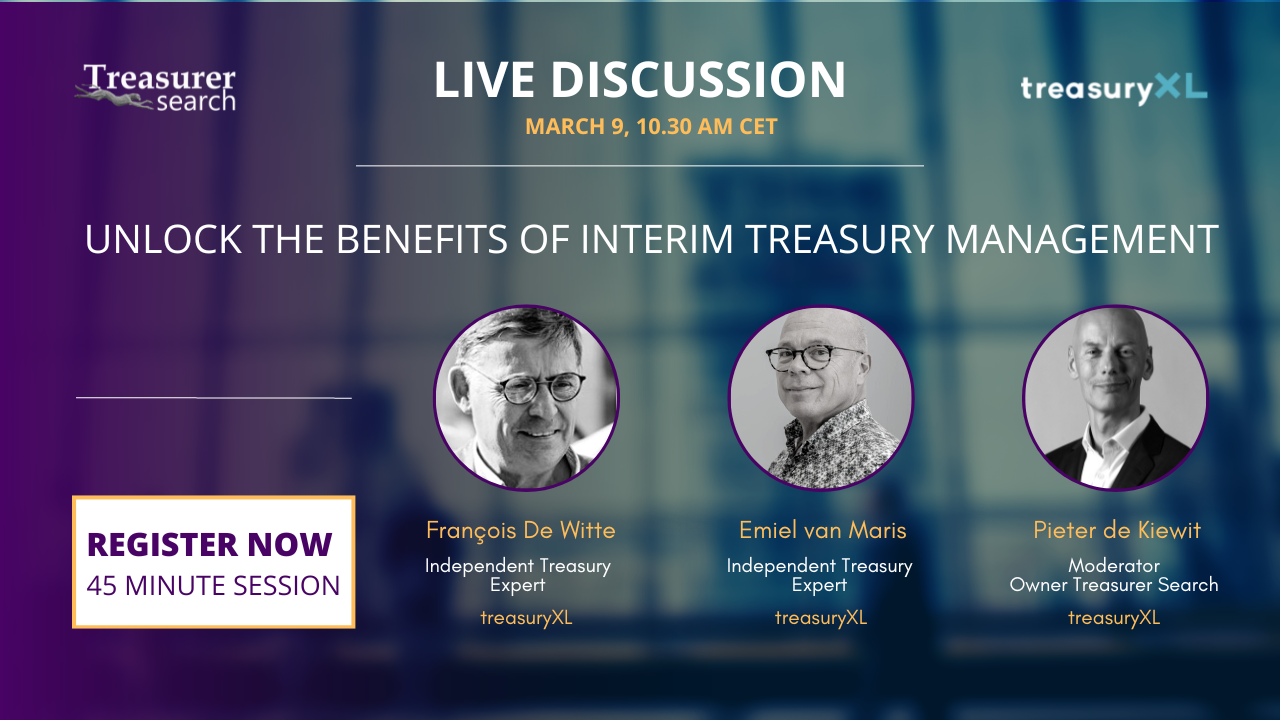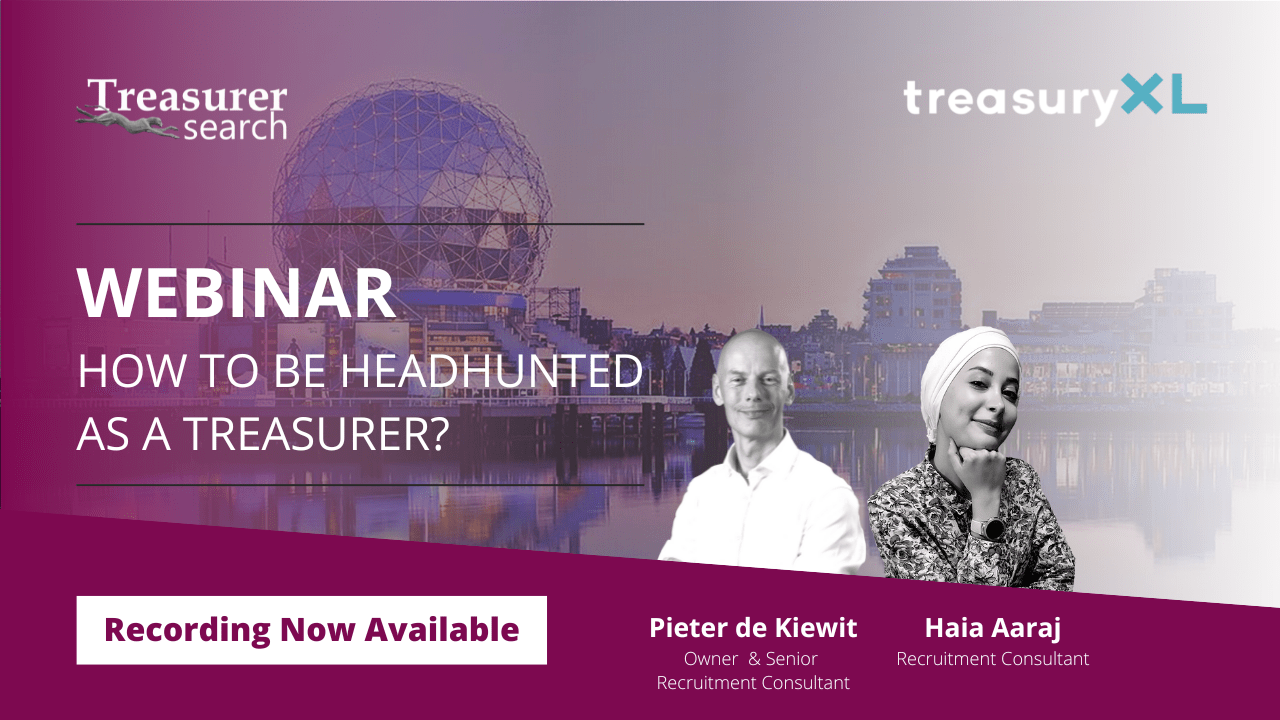14-02-2023 treasuryXL | Treasurer Search | LinkedIn
Join us for a thought-provoking Live Session on Interim Treasury Management, where our experts will delve into the pros and cons of this exciting market.
Unlock the Benefits of Interim Treasury Management: Discover Why it’s a Must-Have for Your Business!

Our panel of seasoned interim treasurers, including Emiel van Maris, Francois De Witte, and treasury recruiter Pieter de Kiewit, will share their valuable insights and experiences.
This webinar is designed for aspiring interim managers, potential clients, and anyone interested in learning more about this market.
Don’t miss this opportunity to gain tips and tricks from the experts in the field and engage in an open discussion.
Register now to secure your spot!
Everyone is welcome to this webinar.
🌟Moderator: Pieter de Kiewit of Treasurer Search
🌟Duration: 45 minutes
𝘉𝘺 𝘳𝘦𝘨𝘪𝘴𝘵𝘦𝘳𝘪𝘯𝘨 𝘺𝘰𝘶 𝘤𝘰𝘯𝘴𝘦𝘯𝘵 𝘵𝘰 𝘳𝘦𝘤𝘦𝘪𝘷𝘪𝘯𝘨 𝘤𝘰𝘮𝘮𝘶𝘯𝘪𝘤𝘢𝘵𝘪𝘰𝘯𝘴 𝘧𝘳𝘰𝘮 𝘵𝘳𝘦𝘢𝘴𝘶𝘳𝘺𝘟𝘓 𝘳𝘦𝘨𝘢𝘳𝘥𝘪𝘯𝘨 𝘵𝘩𝘦 𝘭𝘢𝘵𝘦𝘴𝘵 𝘵𝘳𝘦𝘢𝘴𝘶𝘳𝘺 𝘪𝘯𝘴𝘪𝘨𝘩𝘵𝘴. 𝘠𝘰𝘶 𝘮𝘢𝘺 𝘸𝘪𝘵𝘩𝘥𝘳𝘢𝘸 𝘢𝘯𝘺𝘵𝘪𝘮𝘦. 𝘗𝘭𝘦𝘢𝘴𝘦 𝘳𝘦𝘧𝘦𝘳 𝘵𝘰 𝘰𝘶𝘳 𝘗𝘳𝘪𝘷𝘢𝘤𝘺 𝘗𝘰𝘭𝘪𝘤𝘺.
We can’t wait to welcome!
Best regards,

Kendra Keydeniers
Director, Community & Partners






